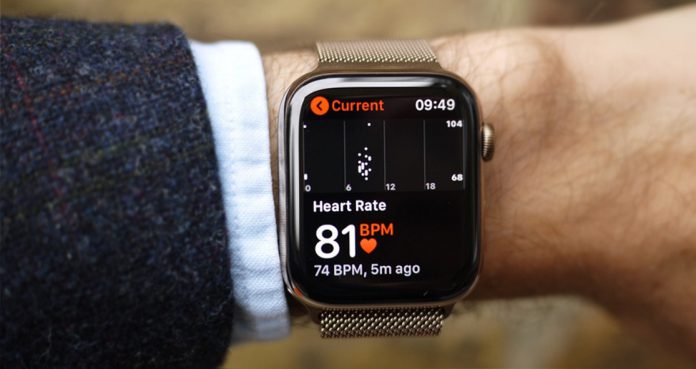Researchers from Stanford University’s School of Medicine conducted a study on 400,000 Apple Watch users and found that the watch helped them to detect Atrial fibrillation (Afib), a common form of irregular heartbeat.
After further analysis and evaluation, nearly 84 percent of these patients, who were signaled by the watch, actually had a medical event.
People with Afib are five times more likely to experience a stroke episode. There were previous studies conducted on the efficacy of the Apple Watch at detecting heart conditions such as Afib, but this study has been the largest ever conducted.
The findings were presented Saturday at an American College of Cardiology conference in New Orleans.
Participants who received notifications from the Apple watch about irregular heartbeats were provided an electrocardiogram (ECG) device to wear. Using the ECG, the researchers were able to found and confirm that one-third of those who notice a warning from the Apple watch actually had Afib.
Nearly 84 percent of notifications from their Apple watch were confirmed to have an Afib episode, as this type of heart condition can be intermittent.
The participants used the Series 3 Apple Watch since the study began prior to the Series 4 release. Since then, Apple has beefed up the device’s medical proficiencies to an extent that Apple is seeking the FDA approval to conduct ECGs on the watch itself. This could be Apple’s plan to enter the health-care marketplace.
Apple is making things clear by stating that their devices are not designed to offer any official diagnosis and there could be plenty of false positives.
The researchers, however, urge people not to completely rely on the Apple watch for any kind of medical help or guidance. In fact, they recommend consulting with a physician before making treatment decisions.
The dean of Stanford University’s School of Medicine said, “The study opens the door to further research into wearable technologies and how they might be used to prevent disease before it strikes.” With success found in detecting Afib, the study’s investigators believe that using wearables to detect other medical conditions and diseases could be useful.






















